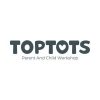Nutrition is one of the most important things to get right when your child starts eating.
There is a lot of narrative about what should be in your child’s food, even Peppa Pig sings about it occasionally. However, when it comes to nutrition, an important factor that is often left out is how much food should you be giving?
A young toddler of one to two years old that is being introduced to the world of food have small stomachs. Packing in nutrients and leaving out empty calories such as sweets and cold drink will help fill them with the right things. At this young age, your child needs energy in the form of food to help them explore their world. On average, this amounts to between 1000 and 1400 calories a day (depending on your child’s exact age, size and activity level). At this age, a lot of people seem to think that the more a child eats, the better – a concept carried through from the early days of breastfeeding. But this is no longer the case. Controlling portion size is vital.
The aim is to get your child to eat six times a day. Breakfast, snack, lunch, snack,d inner, snack. These meals need to contain the above food groups – but the size of the meals must be small. Remember that at this age your child will start wanting to feed themselves using their hands. This is great for their fine motor skills as well as eye-hand coordination but try to monitor how much food actually lands up in their mouth.
The following foods can pose choking hazards:
- Slippery foods such as whole grapes; large pieces of meat, chicken, hot dogs; and hard-boiled sweets.
- Small, hard foods such as nuts, seeds, popcorn, chips, pretzels, raw carrots, and raisins.
- Sticky foods such as peanut butter and marshmallows.
- Always cut up food into small pieces and watch your child while they are eating. It is best to cut sausages and grapes lengthways if you are going to give them to your child.





